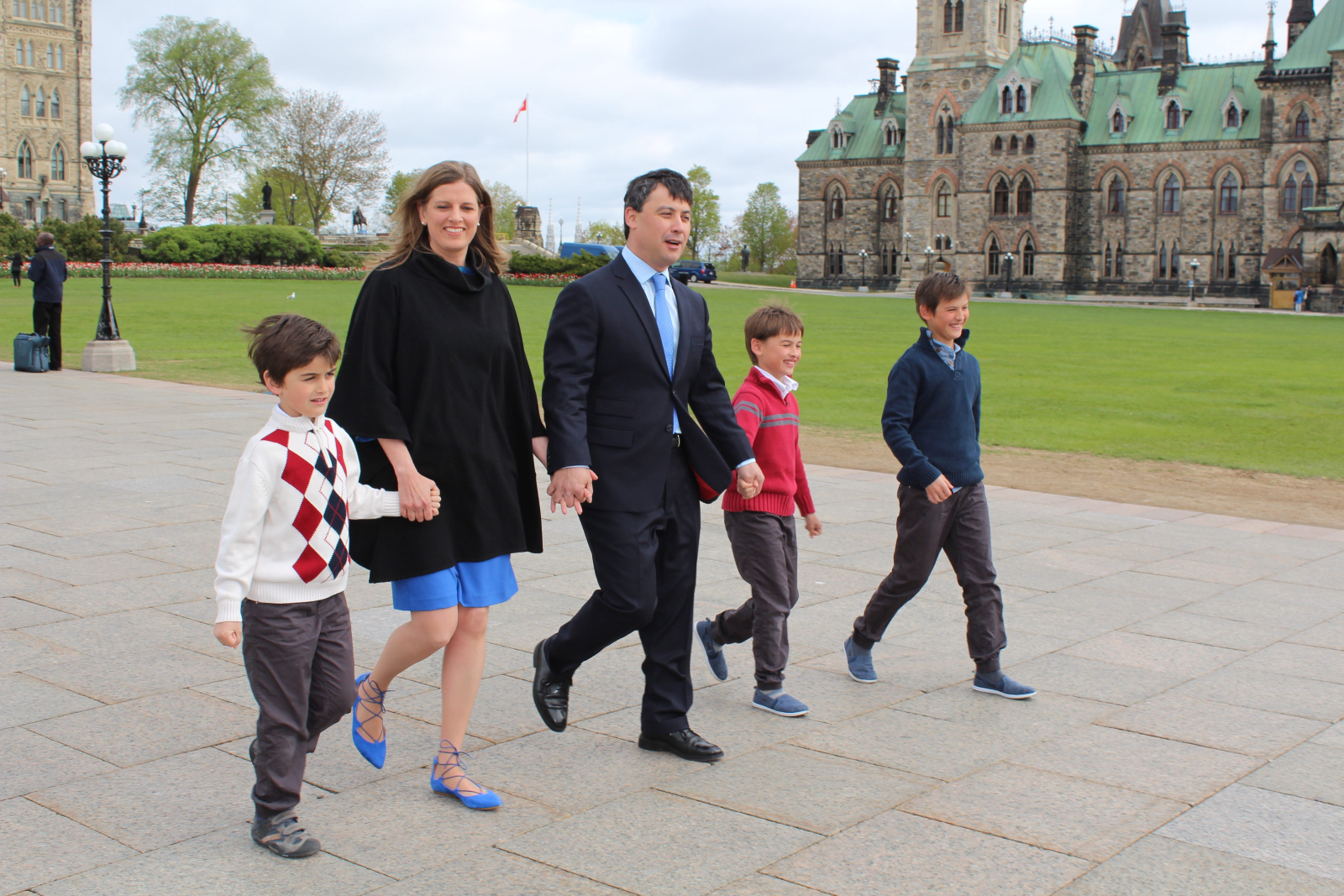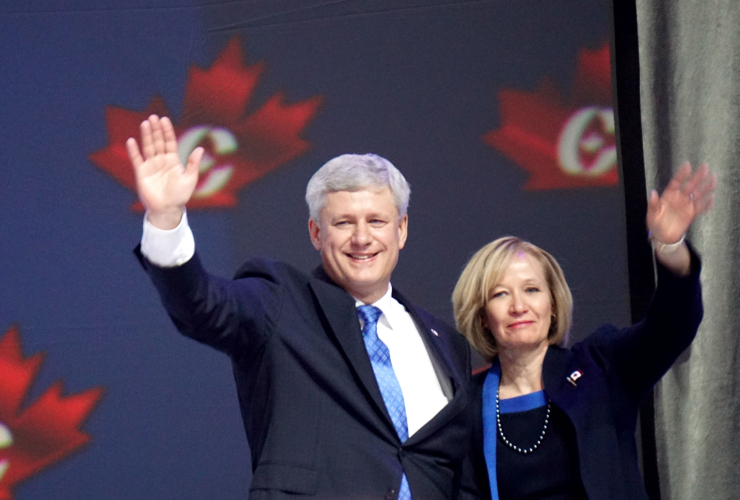Conservatives know Michael Chong as a maverick in politics.
After all, he's running to be leader of the Conservative party, but remarkably believes that federal political leaders have too much power.
He also has a history of breaking ranks with his party whenever he disagreed with policies — even if it meant he would pay a political price for his dissent.
But when it comes to the transportation of fossil fuels, Chong is walking a very fine line between unwavering support for new pipelines and his belief that the federal government must consult with Indigenous communities about projects on their unceded territory.
Alberta cannot "be held hostage"
Simply put, Chong, the Conservative MP for Wellington-Halton Hills, near Toronto — supports pipelines. They're a safe, efficient means of transporting oil, said the veteran MP, and the federal government has a responsibility to get Canada's resource to foreign markets.
"A landlocked province like Alberta cannot be held hostage by other provinces or stakeholder groups from getting its product to market," he told National Observer at the Conservative Convention in Vancouver last week. "That’s simply not fair... because after all, we’re a country, and in a country, we all work together to ensure that everyone is treated equitably.”
Chong has always been a firm believer in the correlation between human activity and climate change, and recently launched a bold environmental platform that includes carbon pricing for the oil and gas sector. While this position may have earned him respect in the House of Commons, he may soon run into a sticky situation for his stance on pipelines and Indigenous rights.
At the convention, he told National Observer that the federal government should not approve pipelines in parts of British Columbia where there are unresolved Indigenous land claims and those with claims have not been part of the decision-making process. He wouldn't clarify however, whether he believes Indigenous people must consent to pipelines on their territory, or what their participation in that process should look like.
Should a First Nation with unceded territory that claims not to have been meaningfully consulted for a project be powerless to stop pipelines, lest it 'hold Alberta hostage'?
Chong would would not answer this question in a follow-up call for clarification. Unlike some of his bold stances from the past, when he spoke out against Quebec nationalism or criticized the concentration of power in the prime minister's office, this time, it appears he's playing it safe.
"Will it cause him great head wind or anything in his campaign? I don’t think so," Bruce Anderson, an esteemed political pundit and former panelist for CBC's At Issue, said of his comments. "I don’t think it’s plausible to say this is his final answer, and I don’t think this will be the defining issue of the Conservative leadership campaign either.”
WATCH: Chong on pipelines, consultation, carbon emissions
The veteran MP for Ontario's Wellington-Halton Hills riding says putting a stop to pipeline construction is not the right way to reduce emissions. He caught up with National Observer at the Conservative Convention in Vancouver on May 28, 2016. Video by Elizabeth McSheffrey.
Democracy, not dictatorship
In his 12 years as a federal MP, Chong has been colourfully described by media and political pundits as "indefatigable," a "very unusual politician," and a "seemingly too-good-to-be-true solution" to his party's reputation of being — and having a voter base of — predominantly "stodgy, uptight old white men."
In 2004, he bravely supported the Kyoto Protocol when his party stood against it, and in 2006, he boldly resigned as Stephen Harper's intergovernmental affairs minister when the House of Commons voted to recognize the Québécois as a nation — in contrast to his beliefs in civic nationalism over ethnic nationalism.
But his record of going against the grain goes beyond his resignation as intergovernmental affairs minister in 2006 — it includes meeting with other federal politicians behind closed doors to talk about climate change in 2013. He also pioneered the Reform Act, which in 2015, gave party MPs the power to trigger leadership review and vote to unseat their leader.
"I’ve always gone back to the principles that have guided me and sometimes that meant that I didn’t play the Ottawa game," Chong explained. “But I’ve always put the future of this country and the principles that I believe this country stands for first.”
All in all, history shows that when Chong felt strongly about an issue, he never shied away from directly challenging the style and substance of former prime minister Stephen Harper's leadership. But it's still far from clear that his policy positions and his unique brand of politics will inspire traditional, right-wing Conservatives to rally around him as the new head of the party.
While many party members in Vancouver last week expressed frustration with the former Tory leader and advocated for more progressive policies, others remained steadfast to traditional values.
Would Chong seek to unite these divided factions? Unite perhaps, but not change, he said.
“Some might call it division, I call it democracy," the veteran MP explained. "Democracy is about the clash of ideas and debate. It’s not about everybody having a single opinion — that’s a dictatorship.”

A bigger tent for the Tories
Chong was once described by public affairs consultant and former journalist Robin Sears as having the foolish dreams of an "optimistic" local visionary — the kind of dreams that threaten a tyrant's primacy, and form the backbone of democracy's greatest achievements. In a written profile of the veteran MP, he found:
"A personality so constantly ‘on,’ so defiantly optimistically swatting at the surrounding dragons with a wooden sword that the cynical consiglieri of his tribe and their opponents, tried to dismiss him with knowing smirks."
Chong has always dreamed big, despite his rather short Cabinet career. And he has always preferred not to dwell on the past — he wouldn't comment on the arguably racist campaign tactics used by the Tories in the 2015 election, or the highly-controversial legacy left by veteran prime minister Stephen Harper.
The father of three drew a rather sweet analogy; when one of his sons does something wrong, he tells him, puts him on the right path, and then moves on.
"We focus on looking forward, because if you always dwell on the past, you actually exacerbate the problem," he said. “So this is a chance for us as party, at this convention, to start the leadership race in earnest, and I’m looking forward to that.”
When asked if he is a "different kind of Conservative" than Harper, he simply said:
“I bring a different perspective. I’m a different generation, I’m 44 years old. I’m from Ontario and I’m the kid of immigrant parents. I've lived the immigrant experience."
In fact, it is Chong's heritage and upbringing — his father was Chinese and his mother was Dutch — that separates him from both Harper and current Prime Minister Justin Trudeau. His mother died early, and his father scrimped and saved to provide for Chong and his two siblings.
Today, the politician hopes this experience will strengthen his connection with a broader range of Canadian voters, including visible minorities, women and immigrants.
"The country is rapidly diversifying in the people that come here from all over the world," Chong told National Observer, "so my campaign will be about this rising new Canada and attracting those people to the Conservative party and to politics generally, to ensure that our House of Commons, the people elected to the legislature and the federal institutions reflect the diversity of this country.”





Comments